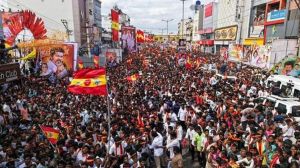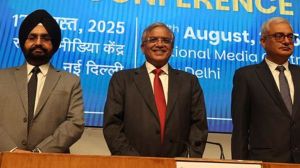Airport tele link dials up to chaos
MUMBAI, November 22: The electronic telephone exchanges at the domestic and international terminals of Mumbai airport are terminally ill. Ev...

MUMBAI, November 22: The electronic telephone exchanges at the domestic and international terminals of Mumbai airport are terminally ill. Even after going through the laborious process of dialling umpteen extensions (directions for which are given on a coarse pre-recorded tape) to reach a particular department, the caller is bid a cold adieu with a simple “Thank you for calling,” no matter if you have spoken to anybody or not.
And if you happen to be one of those who still have old instruments with a dial, the electronic exchange (no 6113300) won’t even accept any extensions dialled after getting through to it. The exchange also does not accept any extensions dialled from public phones, including the new pay phones where you put the Re 1 coin before dialling.
“Generally in case of electronic exchanges the caller is told to hold on for operator assistance once required information is given. But the line just went dead,” said Shankar Maniyar, who wanted to inform his friend, an employee of AirportsAuthority of India, that he was in the city and wanted to see him. “I couldn’t even try any extension numbers, as I don’t know in which department my friend works,” Maniyar added. “A proper telephone receiving system is an absolute must at airports, as most callers don’t have direct numbers of the department they’d want to contact,” said general secretary of International Airports Authority Workers’ Union (IAAWU), L S Dewarde.
This problem can assume disastrous proportions if someone wants to provide information of explosives planted in the airport premises or during other emergencies like a mishap or hijack, he pointed out. Following installation of the exchange two years ago, 24 operators manning telephones at both airports were given other assignments. Of those 24, nine who were on contract basis were subsequently removed from service. The issue was taken up by IAAWU, but as talks with management failed, it decided to launch a stir. Responding to the strike notice dated January 19, 1998, themanagement agreed to appoint new operators within three months from January 28, 1998. When contacted, a senior airport official agreed callers had “some difficulty in getting an extension.”





- 01
- 02
- 03
- 04
- 05


























